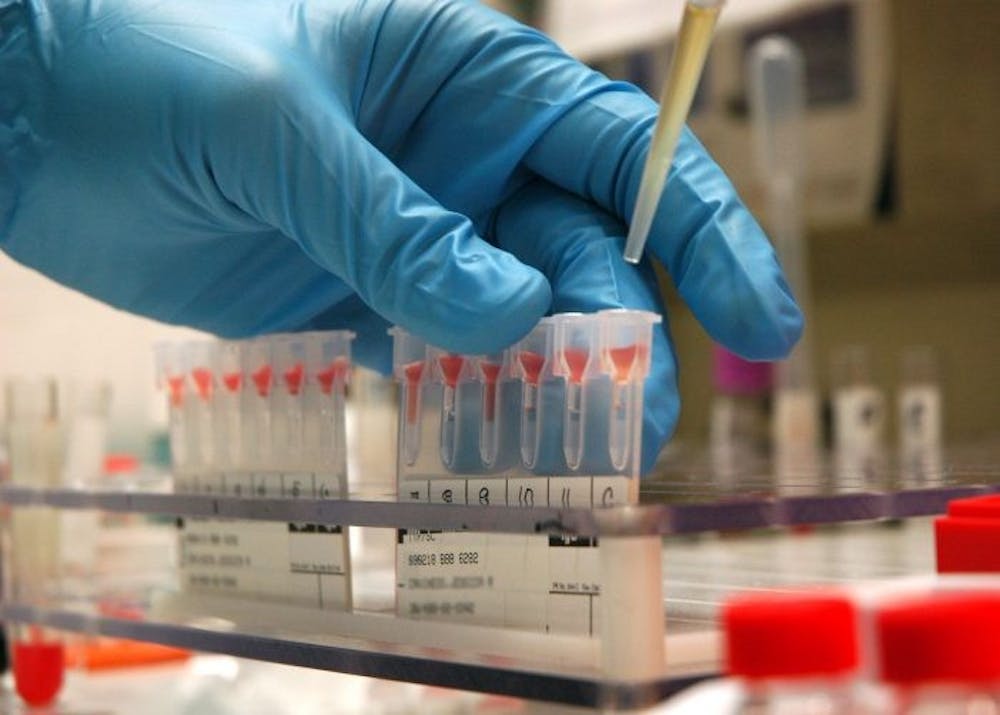Cancer. Even the word strikes fear in people. Cancer in its many forms occurred in nearly 1.7 million people and killed nearly 600,000 in the United States in 2016, according to the National Cancer Institute. Part of the reason cancer is so deadly is it is extremely difficult to diagnose.
At seemingly random times, the cells in a person’s body make a mistake. Sometimes this mistake, or mutation, is harmless and the body continues its functions as normal. But, for some specific mutations, the cells in a person’s body will keep on dividing instead of only growing to replace cells when needed. Cells keep growing when they are not needed, forming tumors and spreading to different tissues and areas of the body.
These tumors will keep growing and spreading often undetected for a long time, until some symptom causes the patient to finally go to the doctor. Typically at this point, the cancerous cells have spread so far that it is impossible to remove or kill them all.
Depending on the cancer, the tumors often take a long time to spread throughout the body, but the earlier they are detected the more likely it is that a patient can undergo treatment successfully.
The big issue, of course, is how long it takes many cancers to finally cause symptoms, especially lung cancer, ovarian cancer, colorectal cancer, cervical cancer and breast cancer. These are known as “late stage cancers” due to the fact that they do not tend to show symptoms in the early stages when they would be easiest to treat. Instead, they typically only appear in stage three or four, the last two stages of cancer.
Four of these five late stage cancers, however, now have an early blood screening test that also detects a total of eight common cancers.
A research team at the Johns Hopkins Kimmel Cancer Center has just released a new screening test that could revolutionize cancer treatment. Called the CancerSEEK, this blood test is a noninvasive screening method that detects ovary, liver, stomach, pancreas, esophagus, colorectal, lung and breast cancer. Five of these cancers — ovarian, liver, pancreatic, esophageal and stomach — previously had no screening test.
These eight cancers account for over 60 percent of cancer fatalities each year, likely due to the fact that half of them are very difficult to detect until the very last stages of the cancer. This new test can hopefully eventually be administered alongside routine blood work. At the moment, the screening tool is still undergoing review and testing, so it will likely be several years before the cost will go down and it can start to be widely used.
“Circulating tumor DNA mutations can be highly specific markers for cancer,” Joshua Cohen, an MD-PhD student at Hopkins and first author on the paper, said in a press release. “To capitalize on this inherent specificity, we sought to develop a small yet robust panel that could detect at least one mutation in the vast majority of cancers.”
There are high hopes for CancerSEEK. In early studies there were very high success rates of detecting the cancers. Of 812 health control participants tested, there were only seven false positives. Of 1,005 research participants with nonmetastatic cancer ranging from stages one to three, the screening test was successful an average of 70 percent of the time, with a high of 98 percent for ovarian cancer and a low of 33 percent for breast cancer.
These results are expected to change the field of cancer treatment, as finally many of the cancers that were so hard to detect without incredibly expensive testing will soon be affordable and easy to access.





